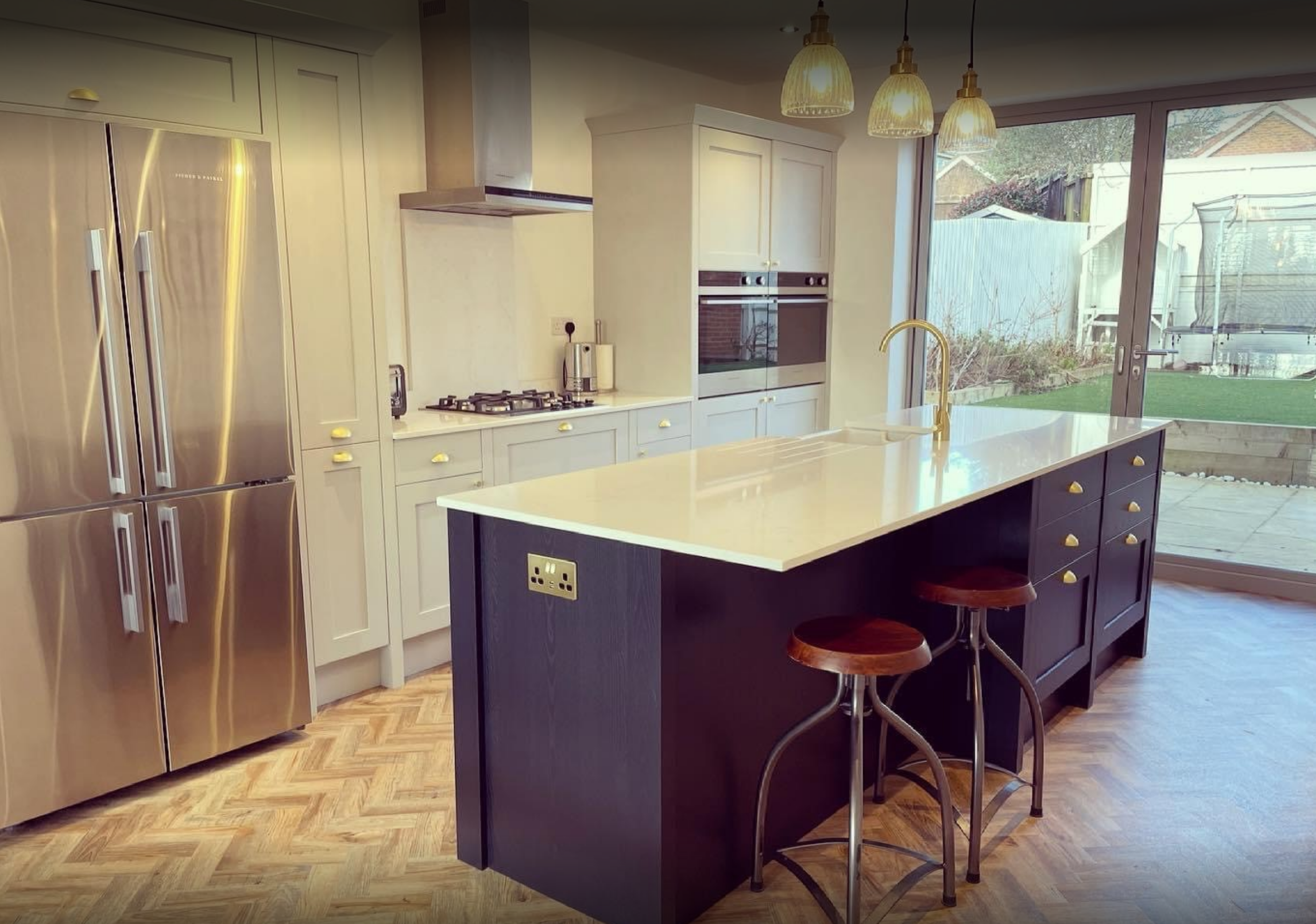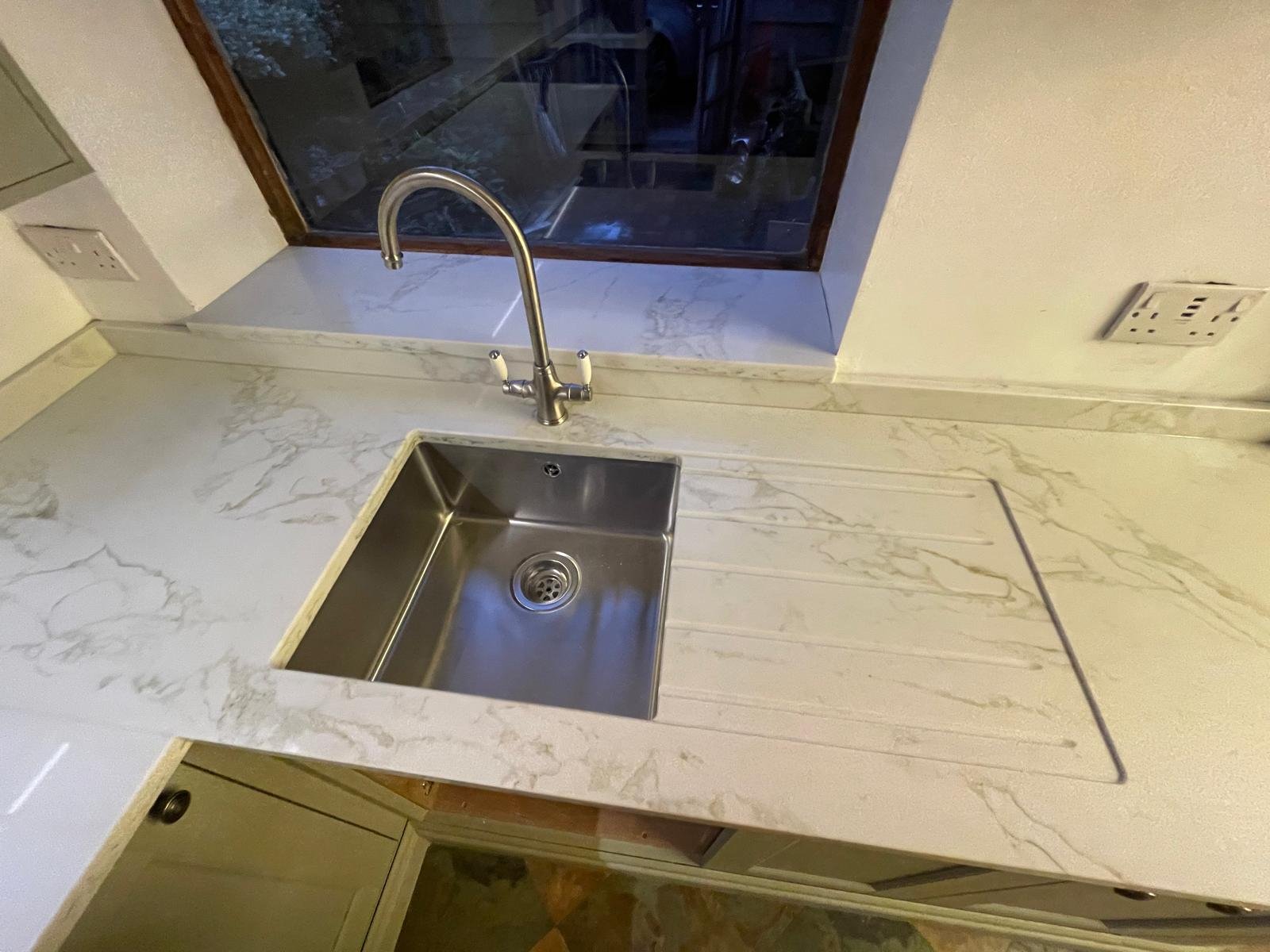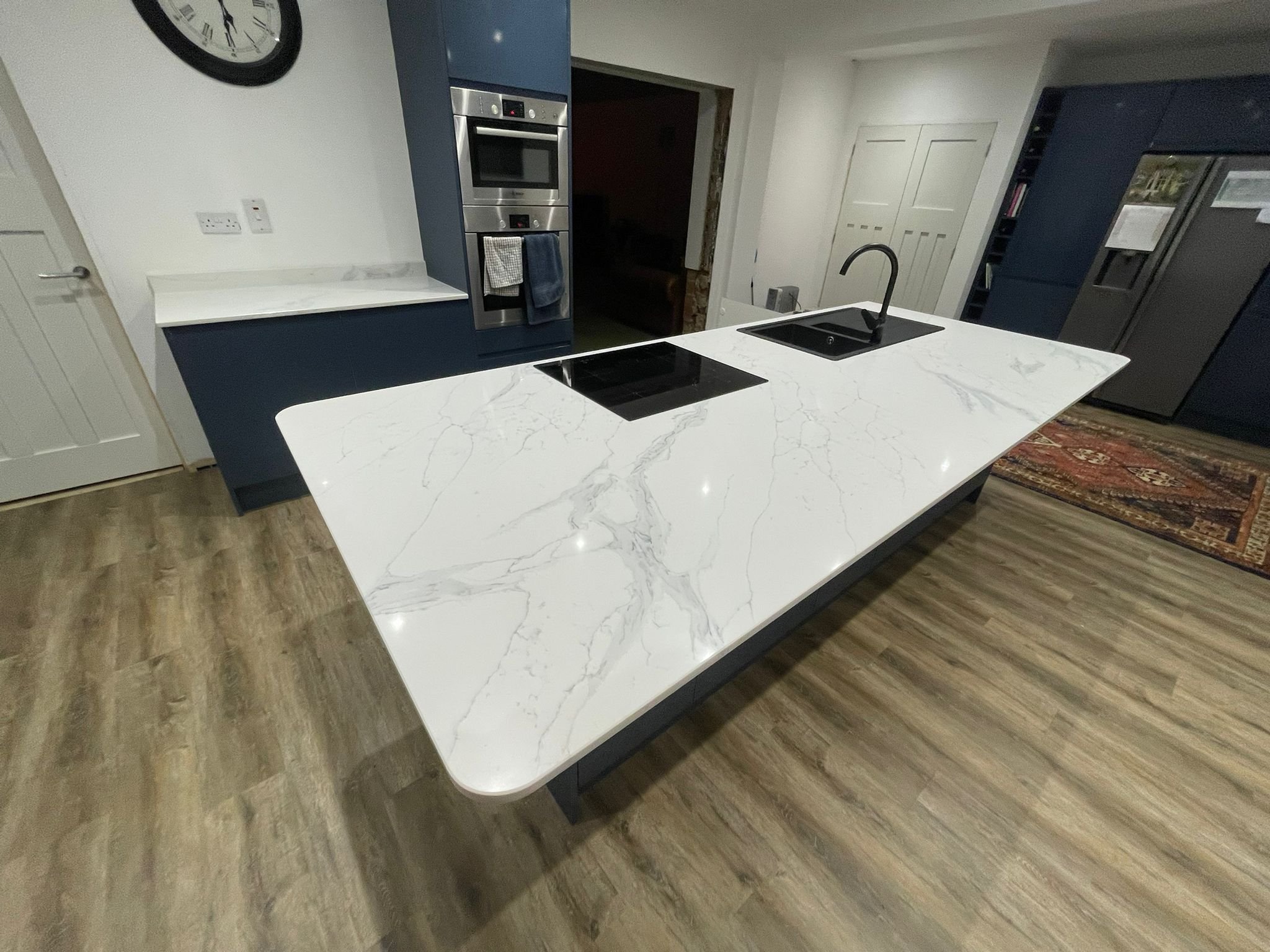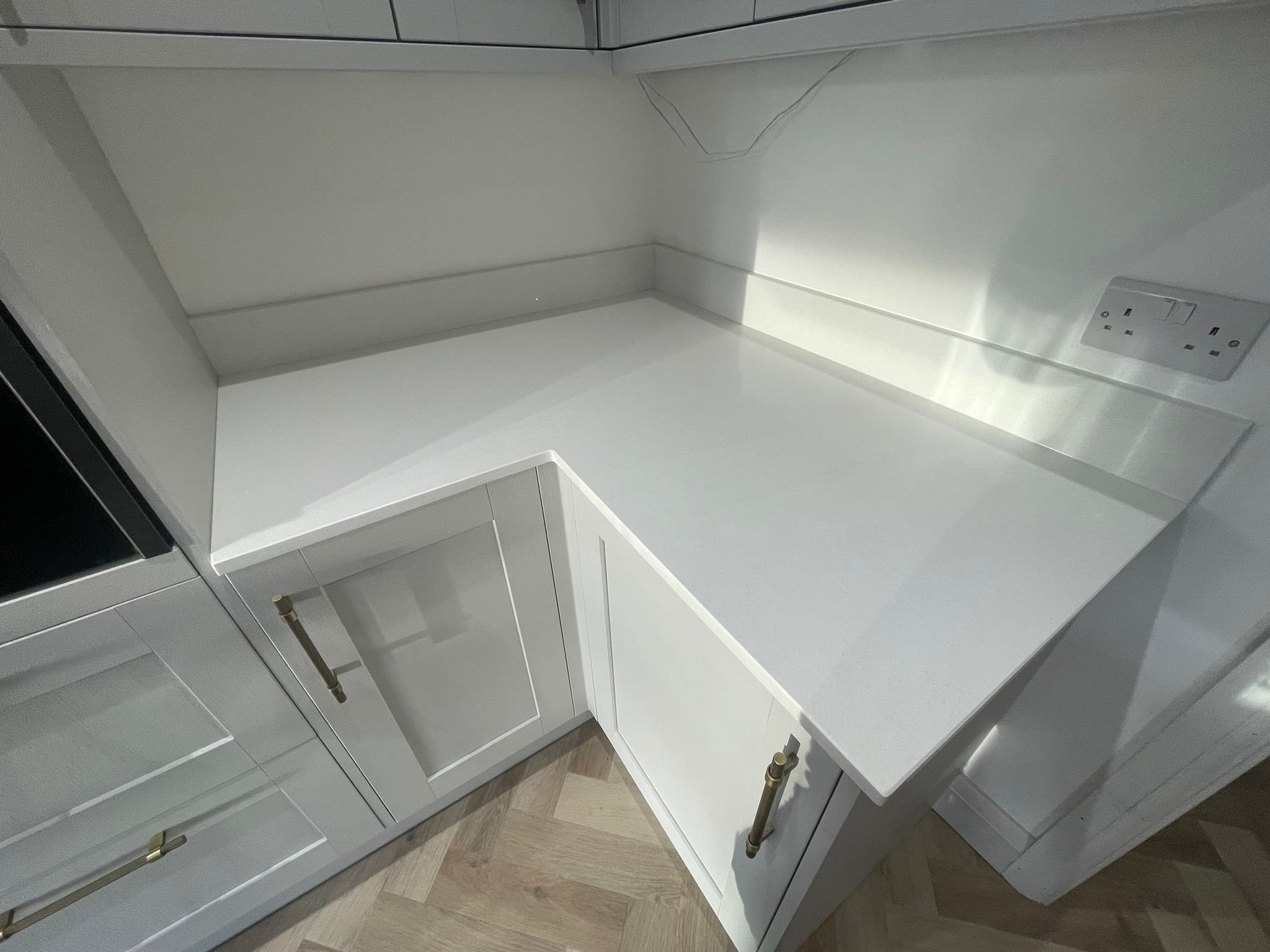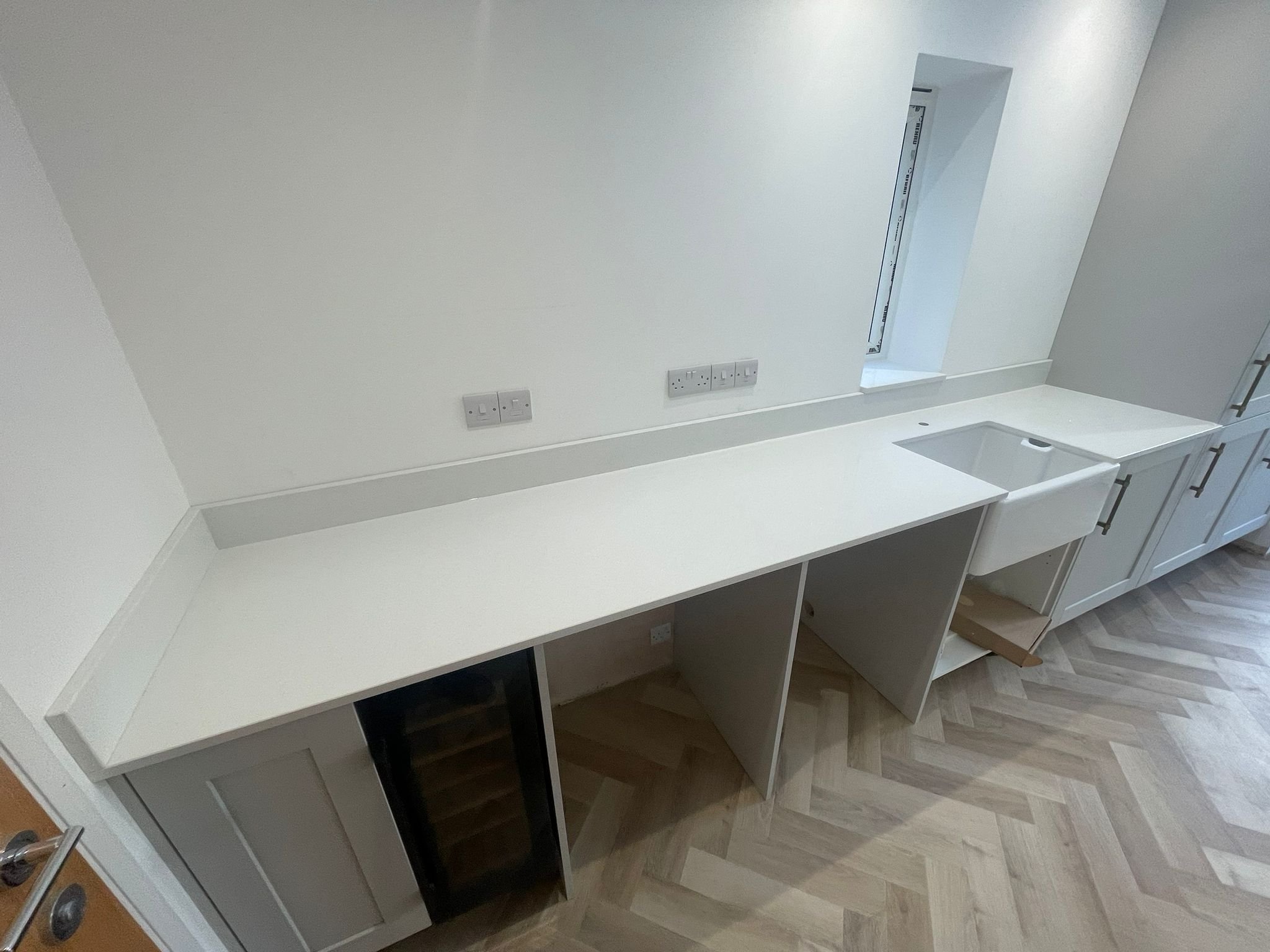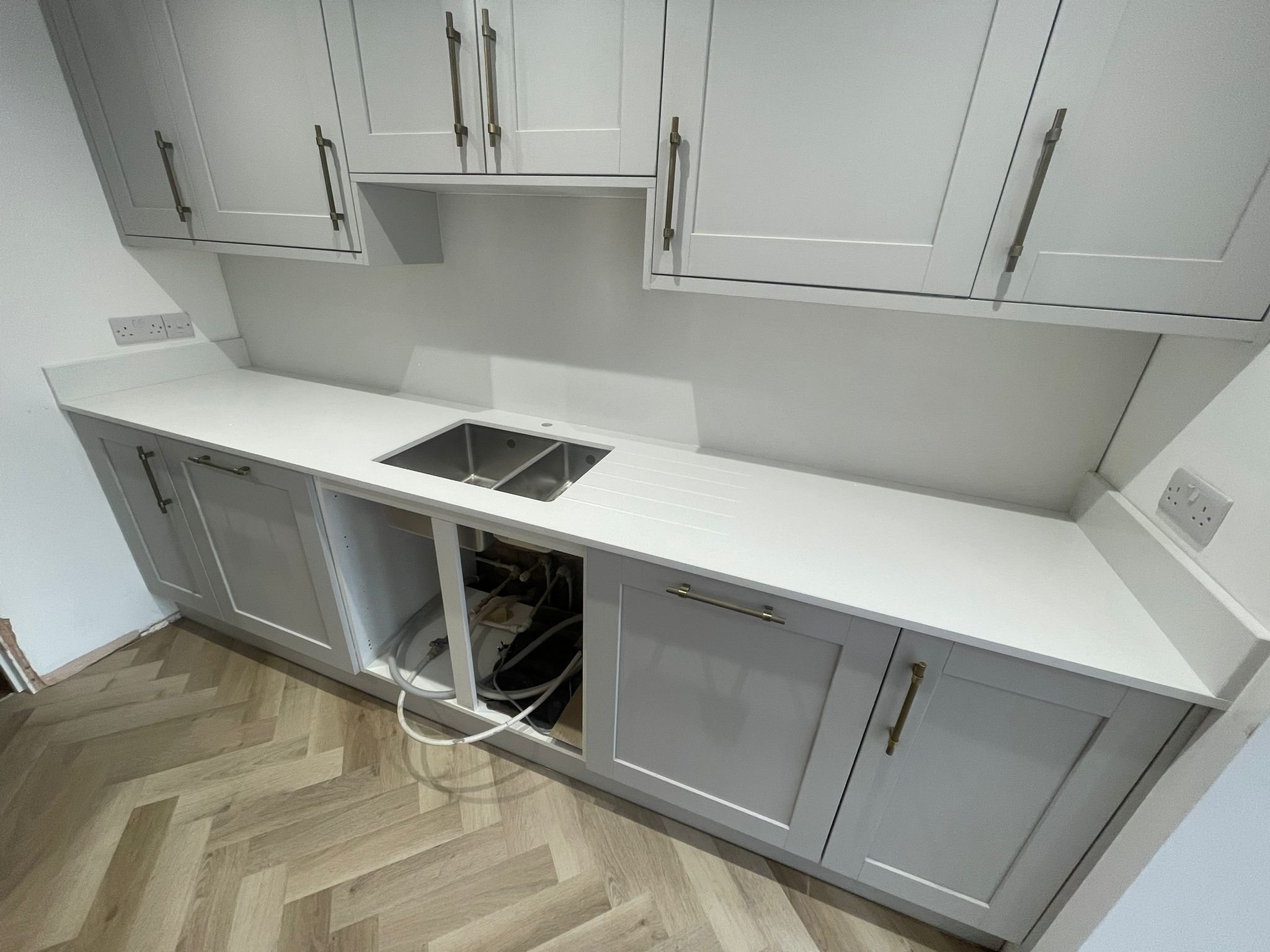QUARTZ
What is Quartz?
Quartz slabs used in kitchen and bathrooms are made from a composite material that is fabricated from natural quartz, one of the hardest minerals in the natural world. Small amounts of glass or metallic flecks are added to enhance the appearance and provide individuality.
What can it be used for?
Quartz can be used for:
Kitchen worktops
Kitchen sinks
Kitchen cladding and splashbacks
Bathroom cladding
Shower trays
The benefits of Quartz…
Quartz is manufactured in a wide variety of colour and pattern options to provide anything from modern and dynamic to a natural look and feel and is non-porous material, therefore:
It does not need sealing
It is stain-resistant
It is resistant to bacteria
Other benefits include:
Highly resistant to physical damage through scratches or abrasion
Not easily crack or break during cutting and transportation
Not easily damaged by heat or cold
It is very low maintenance
It is suitable for use in contemporary or classical kitchens and bathrooms.
Care and Maintenance of Quartz
Although quartz is scratch-resistant it is not scratch-proof and may be subject to damage if you use knives directly on its surface. We recommend you always use a chopping board, which will have the added benefit of keeping your knife sharp too!
Similarly, whilst quartz is resistant to fairly high temperatures it is prone to thermal shock if something very hot or very cold is placed on its surface to cause a rapid change of temperature. We therefore recommend the use of a mat, board or trivet to protect your quartz worktop from dishes taken directly from the oven or freezer.
Being non-porous quartz is generally stain-resistant for short periods of time, although wine, coffee and tea may cause permanent staining. To avoid any lasting damage clean up spills as quickly as possible using water and a mild detergent.
Avoid using cleaners of extreme acidity or alkalinity (e.g. oven cleaner, bleach, drain cleaner, dishwasher rinsing agents, nail polish remover, turpentine) on your quartz surfaces. If any such substance is accidentally spilled on the quartz, mop it up straight away, clean the surface with a mild detergent and rinse with clean water.
Quartz can be damaged by impact from a hard object. Try not to drop heavy items onto quartz surfaces as it may cause chipping or cracking of the surface.
Clean your quartz surface with glass cleaner on a regular basis. Quartz is naturally glossy so does not require polishing, but drying with a lint-free cloth will help to stop smearing.
Remove grease and oil using a bleach-free degreaser/disinfectant or bleach-free disinfectant wipes (look for products that are specifically formulated for quartz work surfaces). Rinse with a clean cloth soaked in warm water. Remove hardened spillages (e.g. caramel, nail polish, paint, adhesive) and chewing gum by scraping gently using a plastic scraper.
If a scraper doesn’t work immediately wet a cloth with a citrus-based cleaner. If it is particularly tough you could pour a small amount of the cleaner onto the stain and allow it to soak for up to 10 minutes. Remove and wipe with a clean cloth soaked in warm water.
If the manufacturer of your quartz surface recommends it, clean it occasionally with a spray glass cleaner. Spray, leave it for a few minutes and then wipe with a clean cloth soaked in warm water to ensure all the spray has been removed.

